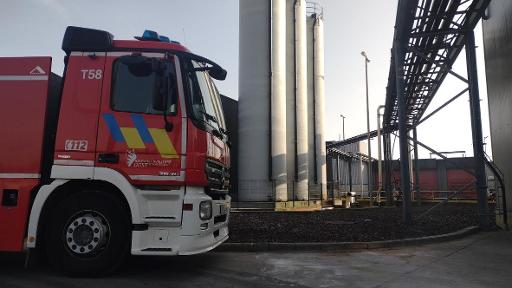From thirst quencher to fire extinguisher, firefighters in Leuven will now use waste water from the Stella Artois brewery to fight fires, according to Belga News Agency.
The local fire brigade and the brewery have come to an agreement on the provision of water, with the first fire truck filling up with 12,000 litres of water on Tuesday, the same day as the World Water Day celebrations.
The goal of the project is to reduce waste from the brewing process and to save water in the Leuven area. This is the first time in history that firefighters in Leuven have partnered with a commercial enterprise.
The water is a byproduct of the beer production process at AB InBev, the owners of Stella Artois. At the end of the brewing process, the wastewater is purified before being drained into the nearby Dyle river, or collected for future use.
Part of this water is recuperated for use in the beer-making process, and now some of this water will also go towards putting out fires in the city.
Saving water and lives
The quality of the beer wastewater is tested by the factory and has been found to be sufficient for its use in firefighting and agriculture, although certainly not drinkable.
Bart Gijzen, firefighter captain for the local area, states that the fire brigade will be able “to make good use of the water for firefighting and reserve supply.”
Using runoff to fight fires saves supplies of regular drinking water, which is often utilised in large quantities to fight fires: “Drinking water, which we normally use to put out fires, is in short supply. Of course, we cannot put out all the fires with the wastewater from AB InBev, but each drop of water saved counts,” said Gijzen.
Related News
- Dumped in the river: Millions of litres of purified InBev beer
- Environmental organisations demand end to sewage discharges into Brussels canal
This innovative solution was the initiative of firefighters themselves. Two years ago, firefighters had used groundwater from a large construction site in Leuven to put out fires. “One thing led to another,” Gijzen said, “we ended up at AB InBev.”
Local farmers and administrations will also be able to benefit from the waste water. During dry periods, they will able to purchase the waste water for their crops and green spaces.

